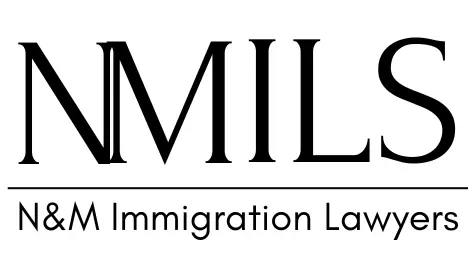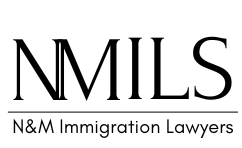Business
A Business Sponsorship License in the UK, also known as a Sponsor License, is a permission granted by the UK Home Office to organizations, including businesses, educational institutions, and non-profit organizations. This license allows them to sponsor and employ foreign workers, students, or volunteers, depending on the specific category of sponsorship.
To obtain a Sponsor License, an organization must meet certain criteria, which include demonstrating the ability to comply with the UK’s immigration rules, maintaining appropriate HR and record-keeping systems, and following the guidelines set by the Home Office.
Once granted, the Sponsor License enables the organization to issue Certificates of Sponsorship (COS) to foreign workers or students who are eligible to work or study in the UK. These certificates are essential for individuals seeking UK visas to work, study, or volunteer with the sponsoring organization.
The Business Sponsorship License is a fundamental requirement for organizations that wish to employ or bring in foreign talent to the UK legally. Different categories of sponsorship, such as the Skilled Worker Sponsorship or Intra-Company Transfer Sponsorship, may be available to meet specific organizational needs.
- Determine whether your company is a small, medium, or large business.
- Skilled Worker Sponsorship
- Intra-Company Transfer (ICT) Sponsorship
- Temporary Worker Sponsorship
- Other Sponsorship Categories
Sponsorship Licence Applications for Employers
If UK employers intend to hire skilled workers from overseas, they must initiate an NMILs sponsor licence application.
Typically, sponsor licences are categorized into Worker Licences and Temporary Worker Licences. The type of position the organization is seeking to fill will determine the specific sponsor licence required.
Employers are obligated to fulfill various duties and responsibilities as the sponsors of foreign workers, both before and during their employment. To begin, the organization must designate which member(s) will serve as its representatives. Those representing the company must hold an executive or senior position and cannot be shareholders.
The specific fee amount is determined by the type of license you are applying for and the nature of your organization.
| Type of licence | Fee for small or charitable sponsors | Fee for medium or large sponsors |
|---|---|---|
| Worker | £536 | £1,476 |
| Temporary Worker | £536 | £536 |
| Worker and Temporary Worker | £536 | £ 1,476 |
| Add a Worker licence to an existing Temporary Worker licence | No fee | £940 |
| Add a Temporary Worker licence to an existing Worker licence | No fee | No fee |
How to Determine Your Status as a Small or Charitable Sponsor: You are typically classified as a small sponsor if at least two of the following conditions are met:
- Your annual turnover does not exceed £10.2 million.
- The total value of your assets is £5.1 million or less.
- Your organization employs 50 individuals or fewer.
You are considered a charitable sponsor if you fall under one of the following categories:
- A registered charity in England or Wales.
- A registered charity in Scotland.
- A registered charity in Northern Ireland, with the provision of proof of charitable status for tax purposes from HM Revenue and Customs (HMRC) if not on the register.
- An excepted charity.
- An exempt charity.
- An ecclesiastical corporation established for charitable purposes.
If you are uncertain about the category that applies to your organization, please reach out to the Business Helpdesk at:
Business Helpdesk Email: businesshelpdesk@homeoffice.gov.uk
How long does the application take?
Most applications are dealt with in less than 8 weeks. UKVI may need to visit your business.
You may be able to pay an extra £500 to get a decision within 10 working days.
Sponsor Licence Application Documents required
Mandatory Documents: To begin your sponsor licence application, you’ll need to furnish at least four mandatory documents. These documents are your primary evidence, showcasing your organization’s eligibility, authenticity, and lawful operation within the UK.
Navigating Appendix A: The key to understanding the specifics of your documentation requirements lies in Appendix A. This section is instrumental in guiding you through the often intricate landscape of the sponsorship application process. It breaks down what you need and helps you find the relevant documents with a series of tables.
Supplementary Documentation: Beyond the mandatory four documents, you have the flexibility to provide supplementary evidence. This can be particularly valuable if you anticipate that certain aspects of your application might raise questions or concerns. The more clarity you can offer, the smoother your application process is likely to be.
Comprehensive Support Information: Your application should not only include documentation but also a comprehensive covering letter. In this letter, you need to explain why you’re seeking a sponsor licence, detail your industry, specify your operating hours, provide an organizational hierarchy chart, and list the names and job titles of your employees (if your organization has 50 or fewer employees). Additionally, share the names of individuals with access to the email address used for the sponsor licence application and provide a contact (landline) telephone number.
Role-Specific Information: If you’re planning to hire skilled workers, your application must contain detailed information about the roles you intend to sponsor. This should encompass the job title and its associated Standard Occupational Classification (SOC) Code, a comprehensive job description, the necessary skills, experience, and qualifications required for the role, and the guaranteed salary if the position were vacant at the time of the application. Clearly indicate where this role fits in your organizational hierarchy, identify any currently vacant positions you intend to assign a Certificate of Sponsorship to, and share this critical information with the Home Office.
Submission Deadline: Timing is crucial in the application process. All supporting documents must be submitted to the Home Office within five days of your application’s submission on the Sponsor Management System (SMS). This window is relatively tight, making it essential for applicants to meticulously prepare their documentation in advance of the initial application submission.
Preparation Is Key: In practice, it often takes organizations several weeks to gather and organize the necessary documents. Adequate preparation not only ensures that your application remains on track but also helps prevent potential issues and grounds for rejection due to document-related errors.
Submitting the License Application Form: Only when the Authorising Officer (AO) is confident that your UK organization has the systems in place to meet its sponsor duties and obligations and that all supporting documents are in order should you submit the online sponsor licence application form. While legal representatives can assist the AO in filling out the draft online application, only the AO can finalize and submit it.
Keep Records: After submission, be sure to retain a copy of the submission sheet, as this cannot be retrieved once it’s closed. Additionally, safeguard a copy of the completed and submitted online sponsor licence application for your organization’s records.
By adhering to these guidelines, you can navigate the sponsor licence application process with clarity and confidence, increasing your chances of a successful outcome.
Certificate of Sponsorship (COS) Allotments
Certificate of Sponsorship (COS) allotments pertain to the number of COS an employer possessing a Sponsorship Licence is authorized to assign to foreign workers. These allotments are governed by specific regulations and limits contingent on the type of Sponsorship Licence and the employer’s requirements.
Fees for Certificate of Sponsorship
When you allocate a certificate to an employee, a fee is required. The cost of the certificate is determined by the type of sponsor license you hold
| Type of licence | Cost per certificate |
|---|---|
| Worker (except workers on the International Sportsperson visa) | £239 |
| Temporary Worker | £25 |
| International Sportsperson – where the certificate of sponsorship is assigned for more than 12 months | £239 |
| International Sportsperson – where the certificate of sponsorship is assigned for 12 months or less | £25 |
Skilled Worker Sponsorship
Within the Skilled Worker Sponsorship category, employers are granted a specific quantity of COS, determined by their individual circumstances, which encompass factors like the size of their organization and their history of employing foreign workers. These COS are utilized to sponsor skilled workers from abroad who are entering the UK to fill designated job positions.
Intra-Company Transfer (ICT) Sponsorship
Employers holding an ICT Sponsorship Licence are apportioned COS to sponsor employees relocating to the UK from an overseas branch or subsidiary of the same company. The number of COS allocated can fluctuate based on the specific ICT route, such as Long-term or Short-term.
Temporary Worker Sponsorship
For employers interested in sponsoring temporary workers across sectors like hospitality, agriculture, or creative arts, COS allotments hinge on the particular scheme within the Temporary Worker category.
Other Sponsorship Categories
Certain employers may possess Sponsorship Licences for distinct categories, such as Ministers of Religion, Religious Workers, or International Agreement Workers. COS allotments for these categories will diverge.
Compliance and Documentation
It is imperative for employers to responsibly use their COS allotments and adhere to immigration regulations. Rigorous record-keeping and compliance with sponsorship duties are vital to uphold the Sponsorship Licence and maintain access to COS allocations.
Innvovator Visa
The Innovator Visa is a UK visa route designed for experienced entrepreneurs who want to establish and run an innovative business in the United Kingdom. Here’s a brief overview of the Innovator Visa application process:
Eligibility: To qualify for the Innovator Visa, you must have a business idea that is innovative, viable, and scalable. You will need endorsement from an approved endorsing body in the UK that assesses your business plan.
Endorsement: You must secure an endorsement from an endorsing body, which is an organization with expertise in the specific industry or sector relevant to your business. They will review your business idea, plan, and your entrepreneurial skills. If they believe your idea is innovative and meets the necessary criteria, they will endorse you.
Application: Once endorsed, you can proceed with the visa application. You will need to provide various documents, including your endorsement letter, a valid passport, and financial documents to prove your ability to support yourself in the UK.
Financial Requirements: You’ll need to show that you have at least £945 in savings in your bank account for 90 consecutive days before applying (unless you have already been in the UK on another visa category for 12 months). This money is intended to cover your living costs.
English Language Requirement: You may need to prove your English language proficiency, depending on your specific situation.
Biometric Information: You will be required to provide biometric information (fingerprints and photograph) at a visa application center.
Visa Application Submission: You can apply for the Innovator Visa online. The application process will involve filling out the application form and paying the required visa fee.
Visa Decision: After submitting your application, it will be reviewed by UK Visas and Immigration. If your application is successful, you will receive a visa vignette in your passport, which allows you to enter the UK.
Arrival in the UK: Upon arriving in the UK, you will need to collect your Biometric Residence Permit (BRP) within ten days. Your BRP will confirm your visa details and grant you the right to live and work in the UK as an Innovator.
It’s important to note that the Innovator Visa is typically granted for three years, and you can apply for an extension when it’s close to expiring. If you meet certain requirements, you may also be eligible to settle in the UK after a designated period as an Innovator.

